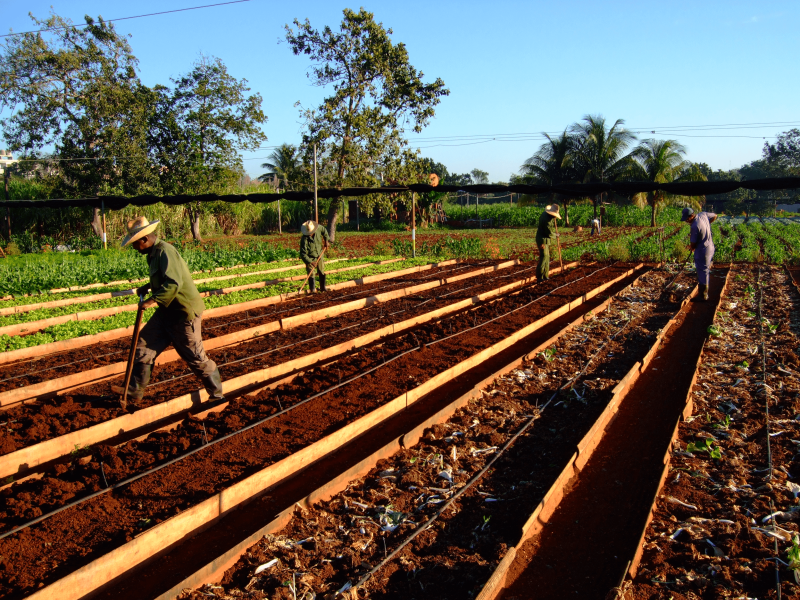Cuba is now a laboratory and research field for US experiments in organic food production.
The United States hopes to learn from the Cubans’ experience with organic production. The USDA and Cuban agriculture ministry signed an agreement during Obama’s visit last week that included calls for sharing information and research on organic farming practices.
It doesn’t take much reading between the lines to understand that Cuba’s “organic revolution” has not been one of choice, but rather out of necessity. And the more years that pass since the collapse of the Soviet Union, the harder it gets to justify the embargo on Cuba. The truth is that Cuba is being bullied via soft power coercion, championed by a gullible left-wing audience that has bought into the propaganda of climate change – that is, we must roll back human progress gained in both the Green and Industrial Revolutions in order to please Mother Gaia.
In 2019 President Gotabaya Rajapaksa announced his intention to transition Sri Lanka to fully organic agriculture over the course of 10 years. Then suddenly in April of 2021 Rajapaksa declared the country had to quit chemical fertilizers cold turkey. The results were devastating and threw the country into chaos. Sri Lanka’s backbone commodity, tea, suffered $425 million in losses. Millions were subjected to rolling blackouts and food lines. In March of 2022, less than a year after the 100% organic agriculture rule was imposed, riots broke out in Sri Lanka, resulting in President Rajapaksa fleeing the country after protesters broke through police barricades and into his house, demanding resignation. Just as Kissinger predicted, serious food scarcity was the fuel that created a fire of political instability.
Sri Lanka has since rolled back their policy on organic agriculture. Advocates of organic and “agroecology” place all blame on the fact that it was rolled out too quickly, and that they didn’t have time to adapt. If we look at the case study of Cuban agriculture, there is a kernel of truth to their position, especially if the ultimate goal is to “reduce human impact on the environment” even if that means human beings must live in poverty. Sri Lanka’s transition to organic was not “sustainable” – its political implications were much more overt and vulgar. Cuba’s transition has been much slower, over the course of decades, to the point where publications can claim that they are doing so out of choice, or that they have achieved “the world’s largest experience of socialist degrowth.” For eco-socialists, Cuba is a success story, Sri Lanka, not so much.































